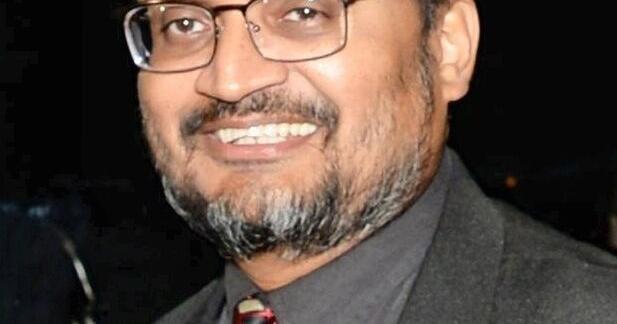When Barack Obama won the US presidency in 2008, it was hoped that it was the beginning of post-racial America. The stain of racism had been cleansed, and the country, and the world, could move into a new era. But the opposite turned out to be true – racism made a stunning comeback in the rise of the far right in Europe and the US.
Something similar happened in Trinidad and Tobago. In 2010, we elected a coalition led by a woman of Indian origin. It was felt to be a transformative moment: corruption and race-politics were over. Fast-forward to 2020: the Trinidad Express ran a red-ink headline, “RACE TALK”, on July 18, 2020. The Opposition Leader was cited for her statement: Blank man – Black man. This was probably a decisive moment which swung a close election.
So we know race is potent in Trinidad. Or is it? An Indo-Trinidadian member of Parliament is accused of corruption by a State agency. Is it that “Indians” are seen as crooks and targeted by the State? The Mustill Report of 2007 makes interesting reading on that score. So does the fact that Basdeo Panday remains the only person prosecuted under integrity legislation. But a lot can change in two decades. Today, our President is a woman of Indian origin. The next Prime Minister is a man of Chinese-Indian origin. (Clarence Thomas complained of a “high-tech lynching” for “uppity blacks” during his confirmation hearings in 1991. Seventeen years later Barack Obama won the presidency of the United States.)
The point is that our reality is not a simple choice between two poles, though politics loves polarisation. Our reality is formed by a locus of points – political, individual, social, economic. This means we adjust what and how we feel based on the experience, information, and other signals that reach us. And this is an unprecedented moment in human history. Never before have our individual and collective consciousness been exposed to so much information, from such a variety of sources, all day, every day, without pause.
In our corner of the metaverse, at any moment, a person of African origin can choose to be a descendant of the formerly enslaved, angry, seeking reparation. Or they can choose to be the end point of history of oppression through which they have not only survived, but endured and triumphed. There is no shortage of role models – JJ Thomas, CLR James, Eric Williams, Lloyd Best. Intellects of world stature. Or Henry Sylvester Williams, Kwame Ture, George Padmore. A triumphant survivor or an angry victim?
Similarly among the Indian population, are we the descendants of a small group peasants and labourers who have our ethnic comforts (food, religion, sarees and dhotis) where we retreat, and comfort ourselves? Or are we descendants of a brave minority who braved the Kala Pani and produced VS Naipaul, Rudranath Capildeo, Jit Samaroo, and a legion of professionals, entrepreneurs, and magnates who now own the land they were brought to work on others’ behalf?
Political campaigns run on victimhood. And, unfortunately, the worst impulses often prevail. But our future is determined by the choices we make in moments of crisis. And we are in a moment of crisis. In terms of criminal activity, our country is in one of its darkest periods since independence. People are crying out for a united stance against crime. Now is not the time to give them racial resentment as a substitute for comfort.
Trinidad and Tobago’s journey from independence into the future has been bumpy. We have had a few moments of triumph but usually followed by long periods of grief and anxiety. What makes this time different from the past is that we are a much more open country, better resourced, and with more inter-political and inter-ethnic connections, and greater variety of choices available to all. It is imperative we exercise our choices intelligently.
Over the next few days, we will witness the very best of Carnival celebrations . While many will be partying all day and night, another large part of Trinidad will be in mandirs celebrating Shivaraatri. I hope to be at Shivaraatri observances and also take in the Panorama finals. These are my choices, and I consider myself privileged to make both without offending either.
My hope is that our citizens realise they, too, have the same choices, and act accordingly. It is up to the leadership we choose to create institutions and means of using this new world we live in, to create a better country, and a better life for all our citizens.
the author is the member of Parliament for Chaguanas West
Source link : http://www.bing.com/news/apiclick.aspx?ref=FexRss&aid=&tid=67bd25c430b34126944d19377e1aaa6e&url=https%3A%2F%2Ftrinidadexpress.com%2Fopinion%2Fcolumnists%2Fbeyond-race-and-rhetoric%2Farticle_323ad2b0-f308-11ef-b27b-cbf743a6f96c.html&c=5009944443564204605&mkt=en-us
Author :
Publish date : 2025-02-24 12:45:00
Copyright for syndicated content belongs to the linked Source.










